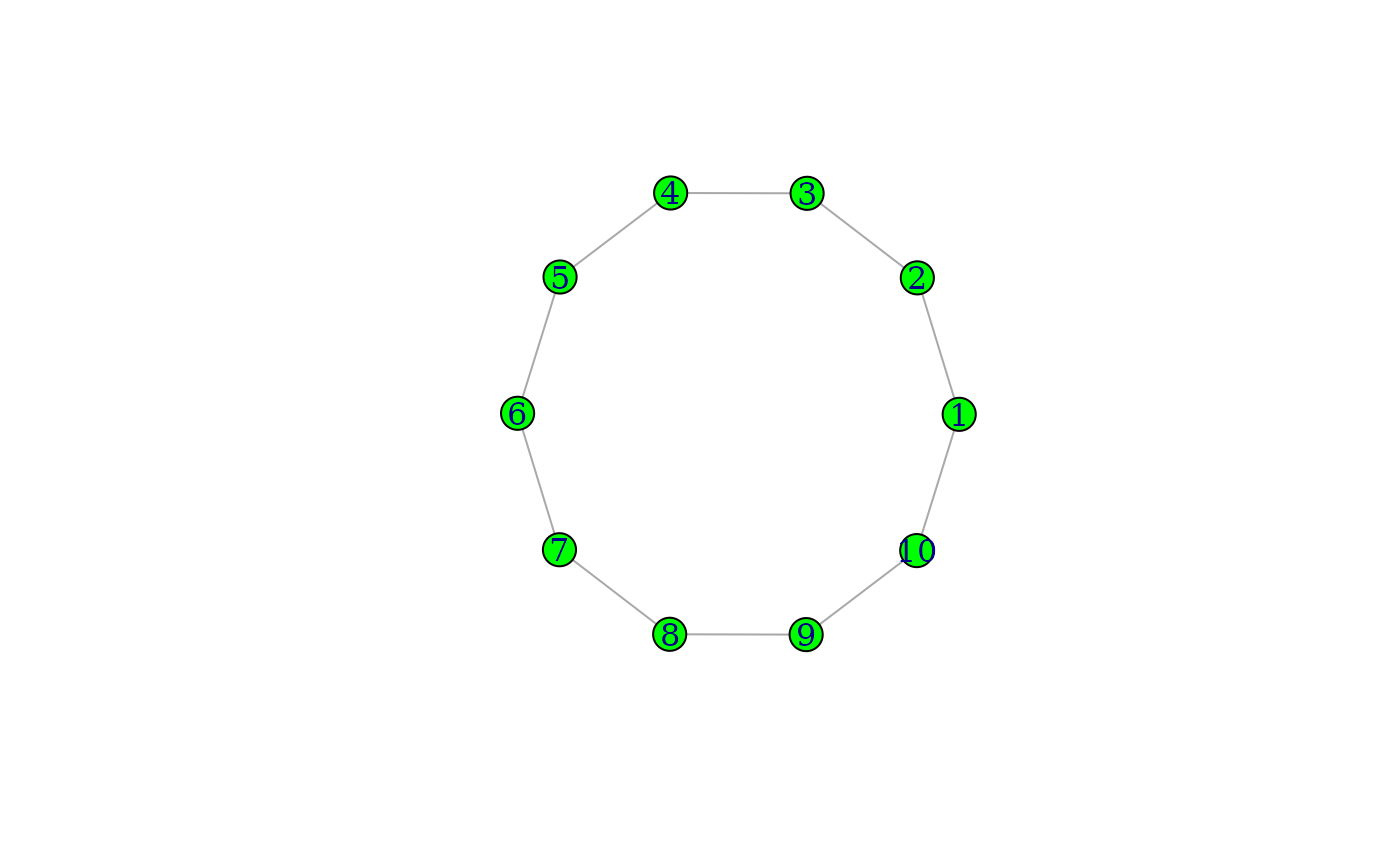plot.igraph() is able to plot graphs to any R device. It is the
non-interactive companion of the tkplot() function.
Arguments
- x
The graph to plot.
- axes
Logical, whether to plot axes, defaults to FALSE.
- add
Logical scalar, whether to add the plot to the current device, or delete the device's current contents first.
- xlim
The limits for the horizontal axis, it is unlikely that you want to modify this.
- ylim
The limits for the vertical axis, it is unlikely that you want to modify this.
- mark.groups
A list of vertex id vectors. It is interpreted as a set of vertex groups. Each vertex group is highlighted, by plotting a colored smoothed polygon around and “under” it. See the arguments below to control the look of the polygons.
- mark.shape
A numeric scalar or vector. Controls the smoothness of the vertex group marking polygons. This is basically the ‘shape’ parameter of the
graphics::xspline()function, its possible values are between -1 and 1. If it is a vector, then a different value is used for the different vertex groups.- mark.col
A scalar or vector giving the colors of marking the polygons, in any format accepted by
graphics::xspline(); e.g. numeric color ids, symbolic color names, or colors in RGB.- mark.border
A scalar or vector giving the colors of the borders of the vertex group marking polygons. If it is
NA, then no border is drawn.- mark.expand
A numeric scalar or vector, the size of the border around the marked vertex groups. It is in the same units as the vertex sizes. If a vector is given, then different values are used for the different vertex groups.
- mark.lwd
A numeric scalar or vector, the linewidth of the border around the marked vertex groups. If a vector is given, then different values are used for the different vertex groups.
- loop.size
A numeric scalar that allows the user to scale the loop edges of the network. The default loop size is 1. Larger values will produce larger loops.
- ...
Additional plotting parameters. See igraph.plotting for the complete list.
Details
One convenient way to plot graphs is to plot with tkplot()
first, handtune the placement of the vertices, query the coordinates by the
tk_coords() function and use them with plot() to
plot the graph to any R device.
Related documentation in the C library
get_edgelist(), incident(), edges(), vcount(), is_loop(), is_directed(), convex_hull_2d(), ecount(), get_eids()
See also
layout() for different layouts,
igraph.plotting for the detailed description of the plotting
parameters and tkplot() and rglplot() for other
graph plotting functions.
Other plot:
rglplot()
Author
Gabor Csardi csardi.gabor@gmail.com

